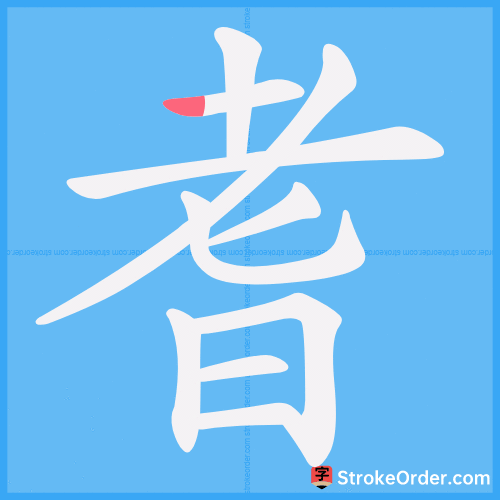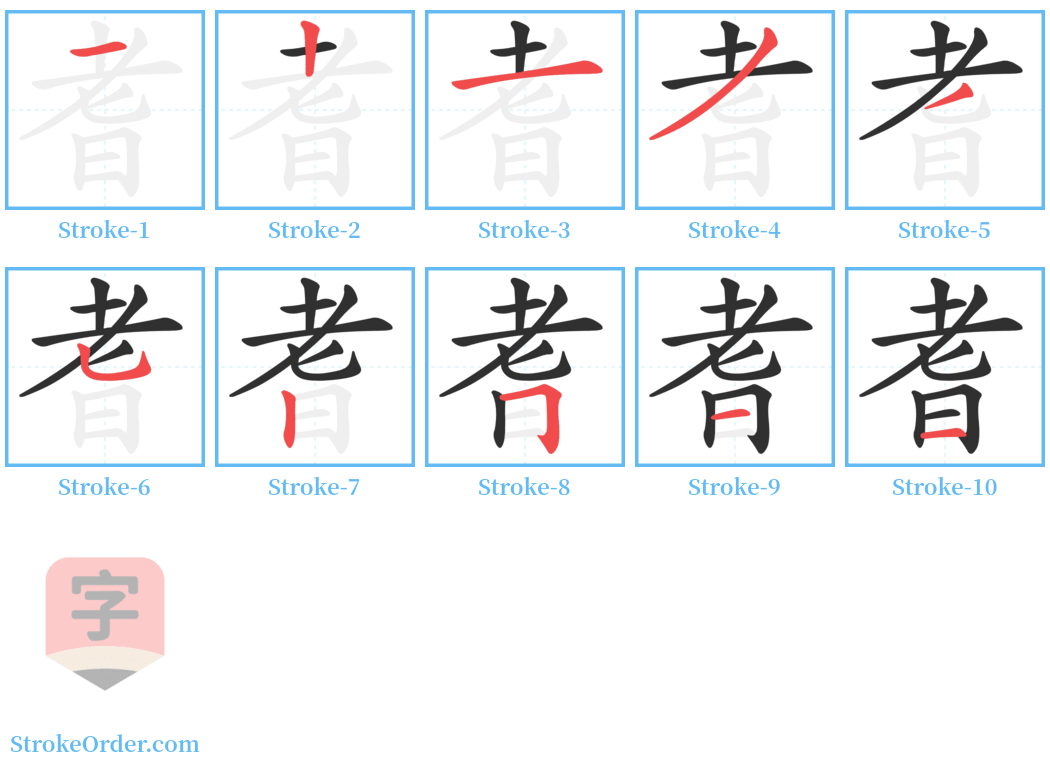耆 Stroke Order
Animated Stroke Order of 耆

Stroke Order Diagrams for 耆

Step-by-Step Handwriting Guide for 耆

Learn to Write Chinese Characters with Video Tutorials
Watch the video of writing the Chinese character "耆", learn the correct stroke order (笔顺) of the character "耆", and master the standard way of writing the character "耆".
Free Printable Handwriting Practice with Stroke Order: 耆
Printable Writing Practice Worksheet of "耆" in Portrait Orientation (Tian Zi Ge)

Printable Writing Practice Worksheet of "耆" in Landscape Orientation (Tian Zi Ge)

Information of 耆
Pinyin
qí、 shì
Radical
耂
Strokes
10 strokes
Usage
★★★★
Definition
man of sixty or seventy
耆 [qí]
1. Yearly elderly, a person over sixty years old.
- 年老,六十岁以上的人。
2. Tyrannical; strong and overbearing.
- 强横。
1. The ancient term for sixty years is 耆. It also broadly refers to longevity.
- 古称六十岁曰耆。亦泛指寿考。
3. Elders or seniors (as a designation).
- 师长,长者。
Examples:
- 耆老 (elderly);
- 耆年 (aged);
- 耆绅 (elder with status);
- 耆宿 (referring to respected elderly individuals in society).
Etymology:
- Its original meaning is "old."
- Character composition is phonetic: "old" is a part of the character to maintain structural balance.
1. The term is used to imply the elderly, especially those of venerable stature.
- 古称六十岁曰耆,亦泛指寿考。
2. The term refers to significant elders in society, noted for their wisdom and experience.
- 年高有德的人(如:耆硕, 耆民, 耆英, 耆彦)。
3. As a verb, it is pronounced similarly to “嗜” (shì), meaning to love or have a liking for.
- 通“嗜”(shì)。爱好。
Examples:
- Reference in Zhou Li: "People from five directions have different desires."
- In Laozi, the term references preferences for creatures.
The term also implies something related to "liking" or having a preference for something.
1. It is the ancient term for love or preference.
- 古同“嗜”,爱好。
Input Method for 耆
Pinyin
qi2
Wubi
ftxj
Cangjie
jpa
Zhengma
bmrk
Four Corner
44601
Unicode
U+8006
Same Pronunciation Characters